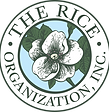How Organic Landscaping Saves Money (and the Planet) Over Time
- Laura Neff
- Nov 16, 2025
- 2 min read

When it comes to designing and maintaining a beautiful landscape, many homeowners and businesses focus on how it looks in the moment. But choosing organic landscaping isn’t just better for the environment — it can also save money over time. From reduced water bills to healthier soil and fewer chemical expenses, organic practices offer a long-term solution that benefits both your budget and the planet.
1. Less Irrigation, Lower Water Bills
Houston’s hot summers and occasional droughts can make lawn and garden maintenance expensive. Traditional landscapes often rely on non-native grasses and plants that need frequent watering. Organic landscaping changes that equation.
By focusing on:
Native plants that thrive in Houston’s climate
Mulching to retain moisture
Soil improvements that increase water retention
…your yard or commercial property requires far less supplemental irrigation. Over time, this results in significant savings on water bills while conserving a vital resource.
2. Fewer Chemicals, Lower Costs
Many traditional lawns rely heavily on synthetic fertilizers, pesticides, and herbicides. These products are expensive and can harm beneficial insects, pollinators, and the soil that supports your plants.
Organic landscaping minimizes or eliminates chemical inputs. Instead, practices include:
Organic fertilizers that feed the soil naturally
Integrated pest management to control problems without harmful chemicals
Compost and mulch that nourish plants and suppress weeds
This approach reduces ongoing expenses on chemical products and equipment while creating a safer, healthier environment for families, pets, and neighbors.
3. Improved Soil Fertility
Healthy soil is the foundation of any landscape. Organic practices focus on building soil life through composting, cover crops, and organic amendments.
Healthy soil provides long-term financial benefits because it:
Holds water more effectively, reducing irrigation needs
Provides nutrients naturally, decreasing fertilizer applications
Supports stronger plants, reducing the need for replacements and maintenance
Investing in soil health is like investing in a savings account — the benefits compound over time, creating a resilient landscape that costs less to maintain.
4. Reduced Maintenance and Labor Costs
Organic landscapes often require less routine maintenance than traditional chemical-dependent lawns. Once native plants are established and the soil is thriving, you’ll notice:
Fewer mowing and trimming requirements
Less weeding thanks to effective mulching
Plants naturally resistant to local pests and diseases
For commercial properties or busy homeowners, this translates into reduced labor costs and time savings, freeing up resources for other priorities.
5. Long-Term Environmental Benefits
Beyond financial savings, organic landscaping helps the environment. By reducing water use, eliminating synthetic chemicals, and supporting native pollinators, you’re contributing to:
Cleaner waterways
Stronger urban ecosystems
Healthier communities
In the long run, a landscape managed organically is an investment in both your property and the planet.
Choosing organic landscaping is not just a sustainable choice; it’s a smart financial decision. With lower water use, fewer chemical inputs, improved soil fertility, and reduced maintenance costs, organic landscaping offers long-term savings for homeowners and commercial properties alike — all while protecting Houston’s environment for future generations. Start your Organic landscape with The Rice Organization Today!
Give us a call : 713-868-2528
#RiceOrganizationInc #OrganicLandscaping #HoustonLandscaping #SustainableLiving #FallLandscaping #EcoFriendlyHouston #OutdoorDesign #BackyardIdeas #NaturalLandscaping #HoustonHomes #CurbAppeal




Comments